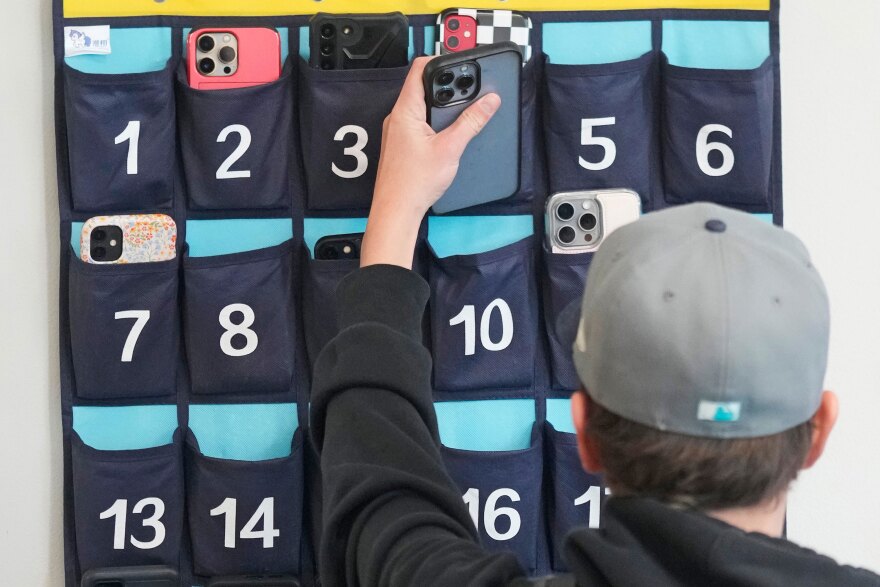In many ways, Utah took a stand against smartphones in 2025, whether that’s schools’ new no-phone policies, new app regulations or politicians speaking out against social media. Even so, parents probably won’t be surprised to find a smartphone on their preteen’s Christmas list.
Nationally, over half of kids between 11 and 12 have their own smartphone, says the Pew Research Center. For kids younger than 11, ownership drops – but only to about a quarter.
For parents in the youngest state, that means the pressure to buy kids technology for the holidays can be high. Questions about safety, social media use or maturity can feel daunting.
“It's a big, big ordeal. I can tell you, most parents I know lose sleep over these questions,” said Paul Godbout, a Salt Lake City dad.
The decision to give his two kids, a 12-year-old son and a 10-year-old daughter, smartphones was more out of necessity. Still, their phones are restricted, and neither has access to an internet browser.
“So we talked about, OK, well, our kids are getting to the age where they can be home without us, and we don't have a landline,” Godbout said. “So how about we just get, like, the cheapest plan ever, and it's just like a phone, and that's all that it is.”
Godbout’s precaution is part of a bigger trend, said Brandon Jeppson, the product research and marketing director at Lehi-based Gabb, a phone company that sells family-friendly technology.
“We talk to parents and kids, and from what we've learned from them, being able to access social media, being able to access the internet without any kind of controls, those are the biggest concerns.”
Because of that, Jeppson said, Gabb focuses on making phones with limitations. But as a kid grows up, their technology does too. Gabb’s incremental model for tech is something that Sarah Coyne, a professor of human development in the School of Family Life at Brigham Young University, uses with her own family.
“The introduction of media should be developmental,” she said. “A lot of parents will give their 10 or 11-year-old a smartphone with unfettered access to the internet, and they’re just not ready.”
Her kids start with a watch that just allows for texting and location data, and then slowly open more doors as time goes on. But Coyne said there’s another, more important step for families.
“The other tool that I think parents can use is to really have open conversations with your kid. Instead of being like ‘TikTok’s garbage,’ which is what I hear a lot from parents, it's like, ‘Let me in your world,’ and, ‘Let's watch this together, help me understand.’”
Those kinds of talks, Coyne said, are related to less depression and anxiety, a better body image, and can prevent harmful social media use.
Godbout shared a similar attitude, although he admitted that any similarity to an expert’s approach was probably accidental.
“What's more important than their relationship with technology is their relationship with us as their parents,” he said of his kids. “Because even if we get this horribly wrong, if we have a good relationship, then we're going to be able to step into that and talk about it.”
There was a time when his son came to him to talk about whether a music album was appropriate, Godbout said. That conversation was valuable to him because it allowed them to come to a decision they both understood.
But there’s something else Coyne thought parents should know, something that isn’t talked about when parenting with technology.
“I want to add that a lot of parents have very high levels of guilt around their kids' media use, and most parents don't think that they're doing it right, and are really struggling with that.”
But she wanted parents to know that they are doing better than they think. A relationship with your kid is a far better predictor of mental health, she said, than the amount of time someone spends on social media.
“And so just kind of, you know, give yourself a little more credit,” Coyne said.






